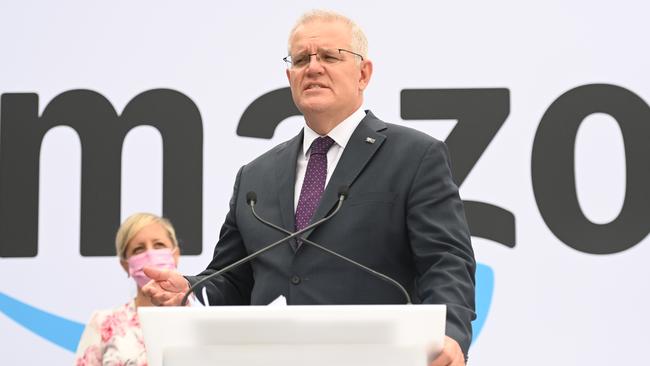High Court backs ATO trust business attack, which will hurt the Morrison government


The Australian Taxation Office successfully appealed a Federal Court decision and made the trust structure an incredibly dangerous way to organise a business. Unique in the developed world, Australians can now be taxed on income they did not receive (and bankrupted as a result).
The hundreds of thousands of SMEs that are organised in trusts must now be very wary about investing in their business. It could leave their beneficiaries with huge tax bills even though those beneficiaries received no money in distributions.
The Government should issue a warning that the new rules apply to 2021-22 with June 30 the cut off date.
The High Court actually admitted what the ATO demanded would cause “unfairness”, but the ATO had found a loophole in the act related to balance date entitlements.
To escape ATO “unfairness” created by the High Court ruling, beneficiaries must now renounce any entitlement before June 30 and before knowing the entitlement they must renounce. The bloodthirsty ATO knows this is impractical in most cases so they are free to unfairly attack.
According to the latest figures, in 2018-19 there were 362,000 income producing trusts in Australia, although the total number of trusts exceeded 900,000. Most will have two or three beneficiaries. Accordingly, this is an event of enormous significance to wide sections of the population.
The way the ATO is now empowered to smash small enterprises structured in trusts is best understood by theoretically translating that power into the corporate field.
If these new ATO trust powers were applied, to say, the Commonwealth Bank or BHP then the ATO could declare what they believe BHP and the CBA earned (which might be very different to the audited profit) and then theoretically distribute that “ATO profit” to all shareholders and tax those shareholders on the “distribution” even though the shareholders had not received the money because the company needed all or part of those “ATO profits” in its business (the analogy, of course, ignores franking credits).
This is a vicious power that has been crafted by the ATO to curb investment in SMEs organised as trusts. To their credit, the ATO was correct in believing it had this power.
Scarily now, the ATO established a power to tax people on income they did not receive in trusts, it is conceivable they will try to extend it to small companies.
Around Australia each year those 360,000 small enterprises that are organised in trusts decide how much of their profit they need to retain in the business for investment (and the trusts pay tax on money retained) and how much should be distributed.
The great advantage of the trust system for small business is that distributions can be varied among family members in accordance with their circumstances. That flexibility power in both retained earnings and distribution has been shredded by the ATO and the High Court.
In the so-called Carter case before the High Court, the ATO calculated the profit to be distributed by ignoring land tax and interest and so required an inflated profit to be distributed to all the default beneficiaries. Because there is no proper US style appeal system, many ATO fiefdoms have great fun in artificially boosting profits in the name of revenue maximisation.
In the Carter case there was a distribution to selected beneficiaries but the ATO required all beneficiaries receive their share of the distribution of the “ATO profit”. The ATO overrode the trust’s discretionary powers and the High Court backed them.
Many small enterprises are trapped because reversing the trust structure into, say, a corporate structure can involve all sorts of complexities and tax bills.
Meanwhile, those using the trust structure must get themselves into position where they can distribute all their 2021-22 profits in cash equally to the beneficiaries. Investment in depreciable plant, property or other long term assets can be extraordinary dangerous because the trust may then not have the cash to distribute. Beneficiaries must be able to pay tax on money they didn‘t receive or a ruthless ATO will bankrupt them.
The idea that in a 21st century developed country people can be taxed on money they don’t receive is a total disgrace. But the Morrison government must take part of the blame because they did not take the actions required to curb ATO attacks on SMEs.
I would hope that both parties will now show some interest in the small business sector and encourage them to invest by promising to retrospectively amend the trust act as well as putting in a proper appeal system.
Meanwhile, if we move from ordinary people conducting their business to those who want to create mischief, the High Court ruling provides a magnificent opportunity.
The underworld can set up trusts and name as the beneficiary someone they don’t like or want to attack and declare a false profit and a distribution. The money will be shipped offshore but the recipient may have to fight a tax liability in the courts even though they didn’t receive the money. They may lose the case.
This is absolute chaos in our tax system and it comes about because of neglect by the federal government, despite repeated warnings that the ATO was out of control.






The Morrison government’s failure to introduce fair taxation rules for smaller and medium-sized businesses will now come back to savagely bite them as a result of a stunning decision by the High Court of Australia.